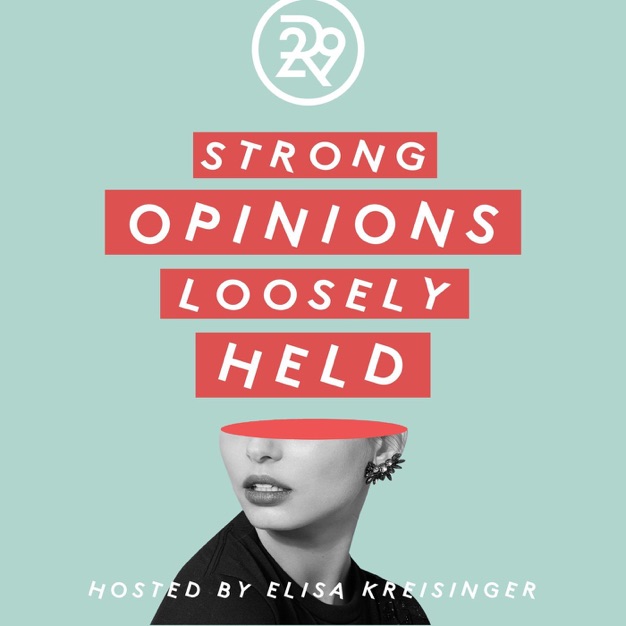
Strong Opinions Loosely Held
Refinery 29's award-winning podcast is back for season 4! In this five-part capsule collection, host Elisa Kreisinger dives into the world of the professional female athlete to explore how they've survived and thrived in a sports-loving country that doesn't alway love them back. Did you know that the highest grossing sport for women is tennis? Or that the US exports many of our best female athletes to China and Russia because they pay them a livable wage? This season we talk with soccer legend Abby Wambach, WNBA superstar Swin Cash, world renowned ballerina Isabella Boylston and sports journalists from around the country to unpack what it means to be a female athlete representing a country that doesn't support women.
- 31 minutes 8 secondsS4E5: The Problem With Perfect
Ballet, figure skating and gymnastics are sports with some of the most vigorous physical and psychological training regimes and yet they’re often dismissed because the star athletes are young women in leotards with big smiles and sparkles, striving for perfection. What does our lack of respect for these athletes say about how our culture treats young women? To get some answers, I talk to award winning sports journalist, Joan Ryan, and American Ballet Theater principal dancer, Isabella Boylston.
Have strong opinions? Let's hear 'em!
Instagram: @popculturepirate
Twitter: @popcultpirate
Hashtag: #SOLHpod #StrongOpinionsLooselyHeld
Hosted on Acast. See acast.com/privacy for more information.
22 December 2018, 5:33 pm - 22 minutes 3 secondsS4E4: WTF Is A "Good Sport"?
There was one event this year in particular that put the topic of what it means to be a "good sport" into the cultural conversation: the women's singles final at the US Open between Serena Williams and Naomi Osaka. The match put the question of women’s anger and specifically, black women’s anger, on the national stage. I talk to Louisa Thomas, New Yorker sports contributor, to unwrap what happened and how the story of Serena and Naomi impacts all female athletes.
Have strong opinions? Lay 'em on me:
Instagram: @popculturepirate
Twitter: @popcultpirate
Hashtag: #SOLHpod #StrongOpinionsLooselyHeld
Hosted on Acast. See acast.com/privacy for more information.
22 December 2018, 1:32 am - 17 minutes 42 secondsS4E3: State of Pay - Part 2
Here's my conversation with soccer legend Abby Wambach on how the US Women's National Soccer Team became fair-pay role models and the unique terror female athletes face when they retire.
Have strong opinions? Send 'em:
Instagram: @popculturepirate
Twitter: @popcultpirate
Hashtag: #SOLHpod #StrongOpinionsLooselyHeld
Hosted on Acast. See acast.com/privacy for more information.
22 December 2018, 1:31 am - 29 minutes 14 secondsS4E2: The State of Pay - Part 1
Despite bringing in more money and winning more games (including four Olympics and 3 World Cups), the U.S. women's national soccer team was paid nearly four times less than the men’s team. But two years ago, the team made headlines when they started a very public fight for equal pay. Since then, they’ve emerged as a role model and a valuable resource for other women’s teams like US Hockey and the WNBA. Why are female athletes paid less, even when they perform better? And how much better could they be if they had basic accommodations like extra leg room on flights to games (especially for players over 6 feet tall?). I asked sports writer Britni de la Cretaz and WNBA icon, Swin Cash.
Have strong opinions? Let's hear 'em:
Instagram: @popculturepirate
Twitter: @popcultpirate
Hashtag: #SOLHpod #StrongOpinionsLooselyHeld
Hosted on Acast. See acast.com/privacy for more information.
22 December 2018, 1:31 am - 26 minutes 16 secondsS4E1: Future of the Fan
College football has everything: devoted female fans, camaraderie and game day rituals. But the players aren’t paid, the coaches make millions and there’s a pattern of disregard for sexual assault allegations. Why do young women gravitate to college football and what feelings are they negotiating in order to stay fans? I talk to Burn It All Down co-host and investigative reporter, Jessica Luther and 3 female fans of college football to find out.
Hey BTW: Welcome to Season 4 of Strong Opinions Loosely Held! This season is dedicated to professional female athletes and how they've survived and thrived in a sports-loving country that doesn't always love them back.
Have strong opinions? I want to hear 'em!
Instagram: @popculturepirate
Twitter: @popcultpirate
Hashtag: #SOLHpod #StrongOpinionsLooselyHeld
Hosted on Acast. See acast.com/privacy for more information.
22 December 2018, 1:30 am - 26 minutes 6 secondsS3E5: Mind Behind The Meme: Quinta Brunson
Quinta Brunson became obsessed with comedy as an undergrad at Temple University. She initially felt like the internet wasn't for her until her friend uploaded what would be Instagram's first viral video, "Butt Won't Clap". From there, she went on to BuzzFeed to make memes on a large scale. Quinta tells us what it's like when your face is a meme- and how she's crafting a career out of it.
Follow Quinta:
youtube: https://www.youtube.com/user/quintabvideos
Instagram: @quintab
Twitter: @quintabrunson
What are your Strong Opinions? Let me know!
Instagram: @popculturepirate
Twitter: @popcultpirate
Hashtag: #SOLHpod #StrongOpinionsLooselyHeld
Hosted on Acast. See acast.com/privacy for more information.
30 March 2018, 7:06 pm - 18 minutes 30 secondsS3E4: The Great Firewall of China
Memes in China are silly, they're based on puns, and they're driving the government crazy. Chinese memes are flourishing under the country's censored internet and, despite the risks, memes are used to communicate political dissent. Harvard researcher and technologist An Xiao Mina explains how the more censored the internet is, the more important the meme, and how the internet in the US isn't that much different than China's.
What are your Strong Opinions? Let me know!
Instagram: @popculturepirate
Twitter: @popcultpirate
Hashtag: #SOLHpod #StrongOpinionsLooselyHeld
Hosted on Acast. See acast.com/privacy for more information.
30 March 2018, 7:04 pm - 20 minutes 7 secondsS3E3: Minds Behind The Meme: Woke Charlotte
Chelsea Fairless and Lauren Garroni run the very popular Every Outfit on Sex and the City Instagram account. But after rewatching SATC for the clothes, they realized how the show focused mainly on the stories of privileged white women. So they created Woke Charlotte - a meme within a meme account that allows Charlotte to call out the problematic moments in the iconic show. The duo pair real scenes with re-written dialogue from Woke Charlotte, so that whenever Carrie, Miranda or Samantha say something offensive, Woke Charolette is there to hilariously point out how behind-the-times they are. Carrie referring to her jewelry as "ghetto gold"? Yeah, not cool.
Follow Woke Charlotte:
Chelsea and Lauren:
@everyoutfitonsatc
What are your Strong Opinions? Let me know!
Instagram: @popculturepirate
Twitter: @popcultpirate
Hashtag: #SOLHpod #StrongOpinionsLooselyHeld
Hosted on Acast. See acast.com/privacy for more information.
30 March 2018, 7:03 pm - 20 minutes 28 secondsS3E2: Peaches On Fleek
Peaches, a young woman of color, uploads a video of herself to Vine. She's impressed with her eyebrows. They're on fleek. The Vine goes viral. Everyone from Ariana Grande to Kim K starts using the word. IHOP uses it to sell pancakes. Denny’s uses it to sell hash browns. Peaches doesn’t make a cent. She doesn't hear from beauty companies. In an era of influencers, Peaches has to start her own Kickstarter to fund a cosmetics line. Who determines who makes money off of memes? And if memes are meant to be remembered, will anyone remember Peaches? Elisa talks with Wired reporter and digital producer, Emma Gray Ellis to find out.
What are your Strong Opinions? Let me know!
Instagram: @popculturepirate
Twitter: @popcultpirate
Hashtag: #SOLHpod #StrongOpinionsLooselyHeld
Hosted on Acast. See acast.com/privacy for more information.
30 March 2018, 7:00 pm - 22 minutes 33 secondsS3E1: Digital Black Face
Even though Tiffany Pollard's appearance on VH1's Rock Of Love was 12 years ago, GIFs of her grandiose reactions are still used to respond to everything from an email about the broken copy machine at work to a group text about bad Tinder dates. GIFs that feature the reactions of black women from reality TV shows seem to be especially popular with white and non-black users. Elisa talks with cultural critic Lauren Michelle Jackson and UC Berkeley Center for Technology Fellow, Kate Miltner about why that might be.
What are your Strong Opinions? Let me know!
Instagram: @popculturepirate
Twitter: @popcultpirate
Hashtag: #SOLHpod #StrongOpinionsLooselyHeld
Hosted on Acast. See acast.com/privacy for more information.
30 March 2018, 6:48 pm - 11 minutes 52 secondsWelcome to Season 3!
Welcome to the world of memes. Where nuance means nothing and images are everything! This season, we find out what happened to Peaches Monroee after she coined On Fleek, dive into the reaction GIFs selection on Giphy, and talk to meme maker Quinta Brunson. In this trailer, Elisa talks with UC Berkeley Center for Technology Fellow, Kate Miltner, who fills us in on some history and tells us why memes are pretty, pretty, pretty cool. Special shout out to our Season 3 sponsor, Spotify. We love you and use you all the time!
What are your Strong Opinions? Let me know!
Instagram: @popculturepirate
Twitter: @popcultpirate
Hashtag: #SOLHpod #StrongOpinionsLooselyHeld
Hosted on Acast. See acast.com/privacy for more information.
30 March 2018, 4:39 pm - More Episodes? Get the App
Your feedback is valuable to us. Should you encounter any bugs, glitches, lack of functionality or other problems, please email us on [email protected] or join Moon.FM Telegram Group where you can talk directly to the dev team who are happy to answer any queries.
 Oh Boy by Man Repeller
Oh Boy by Man Repeller
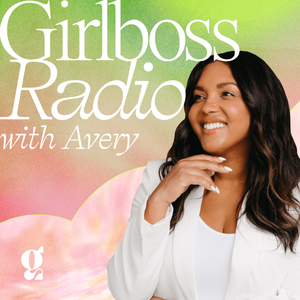 Girlboss Radio
Girlboss Radio
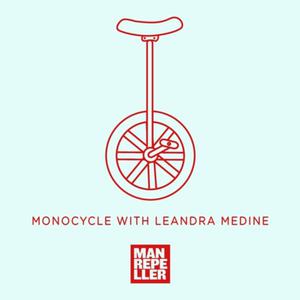 Monocycle with Leandra Medine
Monocycle with Leandra Medine
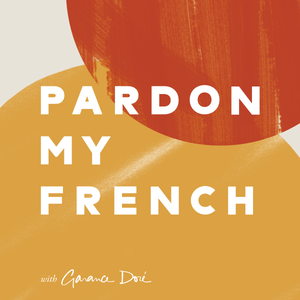 Pardon My French with Garance Doré
Pardon My French with Garance Doré
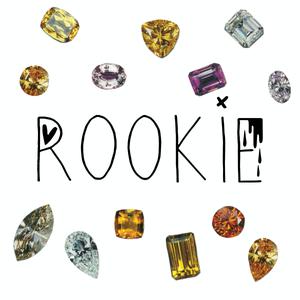 Rookie
Rookie
 Dear Millennial With Megan Tan
Dear Millennial With Megan Tan